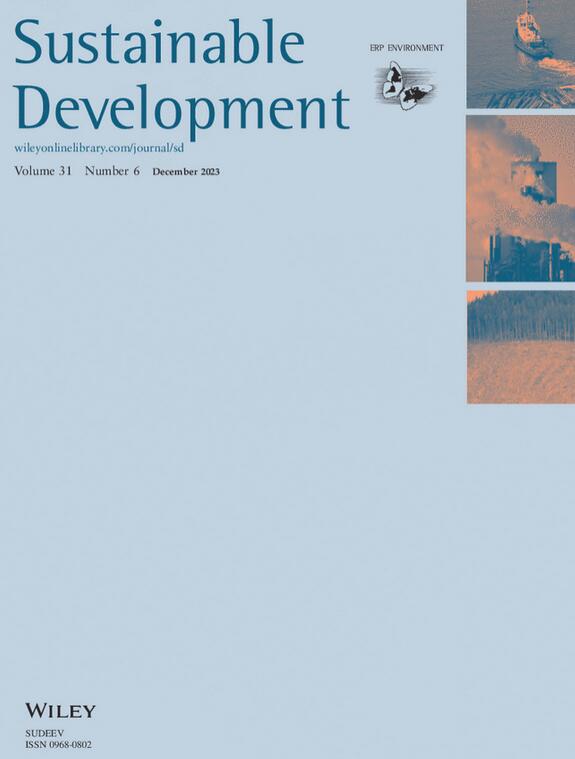制度动态与企业创新:可持续发展之路
IF 8.2
1区 环境科学与生态学
Q1 DEVELOPMENT STUDIES
引用次数: 0
摘要
现代企业的成功主要依赖于制度效率、创新和可持续性的完美平衡。因此,本研究的主要目标是评估制度框架对发展中国家企业创新的影响。为了实现上述目标,我们使用了来自多个来源的公司和国家数据,最终数据集由2014-2018年来自41个发展中国家的24,166个观测数据组成。为了进行分析,我们采用有序probit和工具变量有序probit回归模型。根据研究结果,发展中国家企业创新的成功取决于法律、金融、行政、政治和宗教机构的实力。此外,在体制框架强大而稳定的国家,这种联系更为明显。回归结果表明,强制度环境下的创新企业比弱制度环境下的创新企业更为普遍。这些结果还表明,强有力的法治、产权保护、融资便利、发达的金融市场、道德环境、腐败控制、稳定的政治制度、民主政府、宗教多样性和自由都有助于企业创新。此外,制度效率和企业生存能力为企业创新提供动力,鼓励企业创造改变游戏规则的产品和服务。通过考虑可持续发展的制度设置,这些结果有助于创新管理领域。研究结果对建立健全的机构和创造文化具有实际应用价值。本文章由计算机程序翻译,如有差异,请以英文原文为准。
Institutional dynamics and corporate innovation: A pathway to sustainable development
Abstract Modern corporate success is primarily reliant on a perfect balance of institutional effectiveness, innovation, and sustainability. Therefore, the primary goal of this research is to evaluate the impact of institutional frameworks on corporate innovation in developing countries. To achieve the said objective, we use firm and country data from multiple sources, and the final dataset consists of 24,166 observations from 41 developing countries during 2014–2018. For the analysis, we employ ordered probit and instrumental variable ordered probit regression models. According to the results, the success of corporate innovation in developing countries hinges on the strength of legal, financial, administrative, political, and religious institutions. Moreover, such associations stand out more clearly in nations with strong and stable institutional frameworks. The regression results show that innovative enterprises are more prevalent in strong institutional environments compared to those in poor institutional environments. These results also indicate that a strong rule of law, protection of property rights, easy access to financing, developed financial markets, an ethical environment, control of corruption, a stable political system, a democratic government, religious diversity, and freedom all contribute to corporate innovation. Moreover, institutional efficiency and corporate viability fuel the engine of corporate innovation, encouraging enterprises to create game‐changing products and services. These results contribute to the field of innovation management by considering institutional settings for sustainable development. The results have practical applications for building robust institutions and a creative culture.
求助全文
通过发布文献求助,成功后即可免费获取论文全文。
去求助
来源期刊

Sustainable Development
Multiple-
CiteScore
17.30
自引率
11.20%
发文量
168
期刊介绍:
Sustainable Development is a publication that takes an interdisciplinary approach to explore and propose strategies for achieving sustainable development. Our aim is to discuss and address the challenges associated with sustainable development and the Sustainable Development Goals. All submissions are subjected to a thorough review process to ensure that our readers receive valuable and original content of the highest caliber.
 求助内容:
求助内容: 应助结果提醒方式:
应助结果提醒方式:


